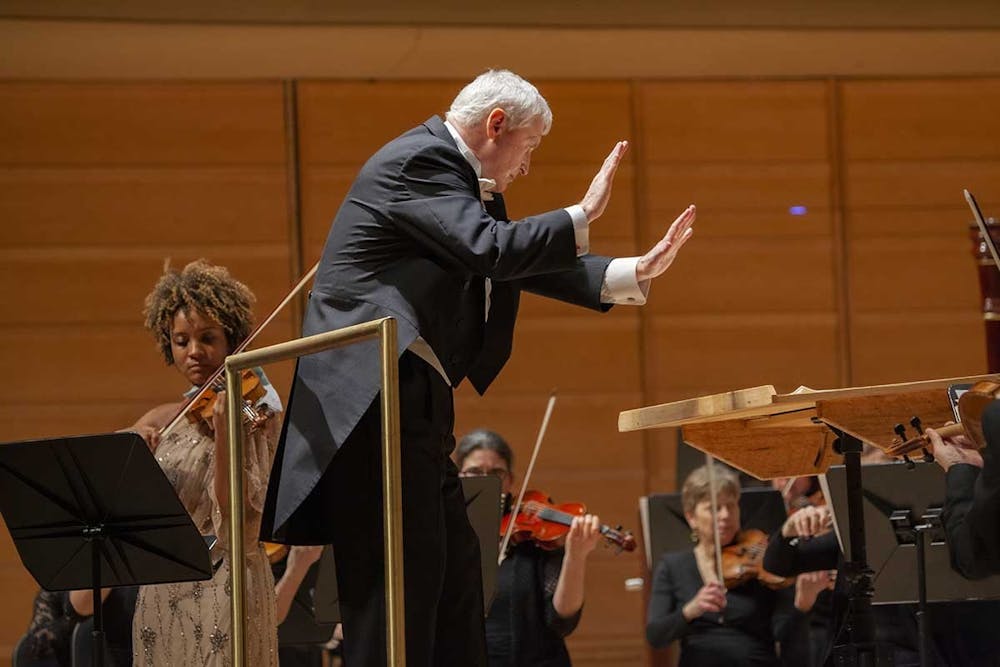During Black History Month, the Life section published a series of stories highlighting various forms of African and African American art in Washington, D.C.
The National Philharmonic at Strathmore performed “Black Pioneers in Classical Music,” a concert showcasing the work of African American composers, on Feb. 22.
Piotr Gajewski, the music director and conductor of the Philharmonic, said that the goal of the concert was to celebrate black composers as a part of Black History Month.
“We have centuries’ worth of classic music and it’s largely the domain of white guys, as far as composers,” said Gajewski in an interview with The Eagle. “We haven’t paid enough attention to other works by African American composers, woman composers and Latin American composers. We plan to change that.”
Before the show, Samuel Thompson, the creative director of the International Florence Price Festival and violinist, and Rebecca Smithorn, the cover conductor for the National Philharmonic, gave a pre-concert talk. The two discussed the role of African American composers in classical music and about the pieces that would be played throughout the night.
The Philharmonic first played “Wild Strumming of Fiddle” from the musical work, “All Rise,” composed by Wynton Marsalis. Marsalis, a New Orleans native, has won nine Grammy awards and a Pulitzer Prize for music. The piece blends jazz and classical music, through the different instruments and techniques used.
Melissa White was the featured soloist for the next piece, the “Violin Concerto No. 1 in D Major,” by Florence Price. White is a founding member of the Harlem Quartet and a Sphinx Competition winner.
The piece featured three movements: tempo moderato, andante and allegro — changing tempo and volume throughout the orchestra. Price composed the piece in 1939, but it wasn’t until 2009 that it was uncovered in an abandoned house, according to the concert program. When the Chicago Symphony Orchestra debuted her “Symphony in E Minor” in 1933, she became the first African American woman to have a symphony performed by a major orchestra.
After an intermission, the Philharmonic performed two more pieces.
The first, “Lyric for Strings,” was composed by George Walker. It is his most popular piece. Walker was an influential composer, the first African American man to win a Pulitzer Prize for music, and was inducted into the American Classical Music Hall of Fame in 2000. “Lyric for Strings” began with a slow buildup with different solos, culminating in a climactic harmony.
Finally, the Philharmonic performed William Grant Still’s “Symphony No. 1 in A-flat Major (‘Afro-American’),” which featured the movements moderato assai, adagio, animato and lento, con risoluzione. During his time as a composer, Still produced over 150 works and is one of the most renowned composers of the 20th century. “Symphony No. 1 in A-flat Major (‘Afro-American’)” featured a blend of classical, blues and jazz styles while also using a wide range of techniques, all while alluding to African American culture through the musical references.
“The oldest piece we played is around 90 years old, it’s not some new phenomenon,” said Gajewski. “Classical music takes a while to catch up sometimes, but it’s important to include African American composers. This is the beginning of something.”
Tickets for events at the Strathmore can be found here; college students can pay $10 to attend all Philharmonic events. The Strathmore is located on the Grosvenor-Strathmore metro stop on the Red Line.





